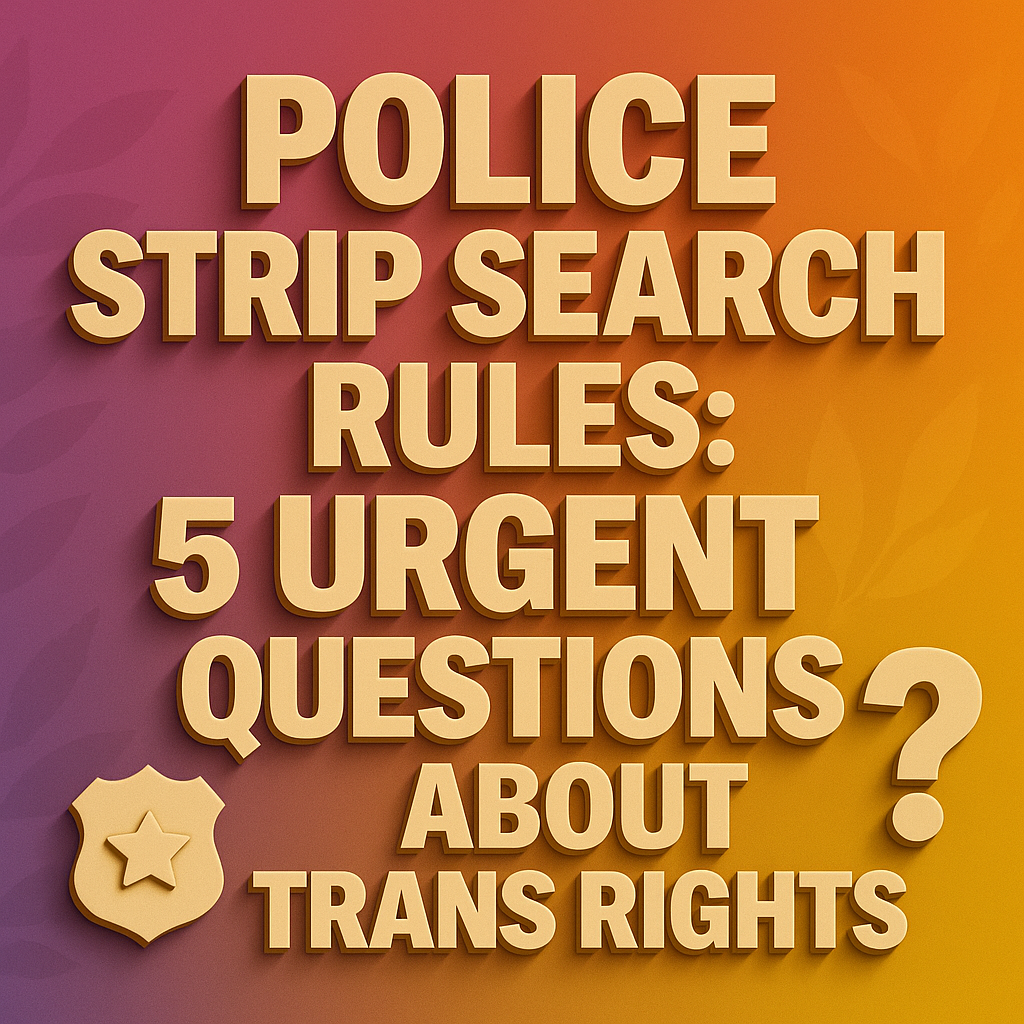New guidance on Police Strip Search procedures in the UK has sparked growing concern from human rights advocates and LGBTQ+ organizations. At the center of the controversy lies the impact on transgender individuals, who may face increased risks of discrimination, trauma, or unlawful treatment under the updated recommendations.
The Home Office claims the revisions aim to “clarify expectations” and ensure consistency across forces. But critics argue the changes could weaken existing safeguards, particularly in cases involving minors and trans people.
WHAT’S CHANGING IN POLICE STRIP SEARCH PROCEDURES?
The new guidance outlines when and how police strip searches can be conducted, emphasizing that they must be proportionate and authorized by a supervising officer. However, the document introduces language that some groups say is vague—especially when it comes to defining the role of “gender identity” in determining who performs the search.
Previously, best practices suggested that transgender individuals should be searched by officers who align with their affirmed gender identity. The revised policy now states this should happen “where operationally possible,” a shift critics say opens the door to subjective interpretation.
HOW DO THESE GUIDELINES AFFECT TRANS INDIVIDUALS?
Transgender people already face elevated risks in interactions with law enforcement. A Police Strip Search can be an invasive and deeply personal experience; when conducted without regard for a person’s gender identity, it can also be traumatic.
According to Stonewall UK, transgender individuals are disproportionately affected by misgendering, mistreatment, and a lack of understanding from authorities. Under the new guidance, the possibility that trans people may be searched by officers of the wrong gender identity raises concerns over dignity, mental health, and compliance with the Equality Act 2010.
REACTIONS FROM HUMAN RIGHTS ORGANIZATIONS
LGBTQ+ rights groups and legal professionals have condemned the policy changes, warning that they may be incompatible with human rights standards. Liberty, a UK-based civil liberties organization, noted that “trans people are not mentioned once in the core section outlining officers’ responsibilities”—a glaring omission in the eyes of campaigners.
Stonewall added that “respecting someone’s gender identity during a strip search is not a logistical issue—it’s a human right.”
COMPARING INTERNATIONAL STRIP SEARCH PROTOCOLS
Globally, approaches to Police Strip Search procedures vary. In countries like Canada and New Zealand, specific legislation ensures that transgender individuals are searched by officers who match their affirmed gender. In contrast, the UK’s “where operationally possible” stance may fall short of international human rights benchmarks.
This raises an important question: Is the UK aligning with best practices, or sliding backward?
WHAT’S NEXT FOR UK LAW ENFORCEMENT AND POLICY?
The Home Office has stated that the guidance remains under review and will be adjusted based on feedback from police forces and legal bodies. Meanwhile, campaigners continue to urge government officials to issue clearer rules that protect vulnerable populations—including transgender individuals and minors.
Public trust in law enforcement hinges on transparency, accountability, and a commitment to human dignity. As scrutiny of the Police Strip Search guidance intensifies, so too does the call for reform.
Want to stay informed on issues like this?
Explore more insightful stories and practical advice on our LGBTQ+ News page.












